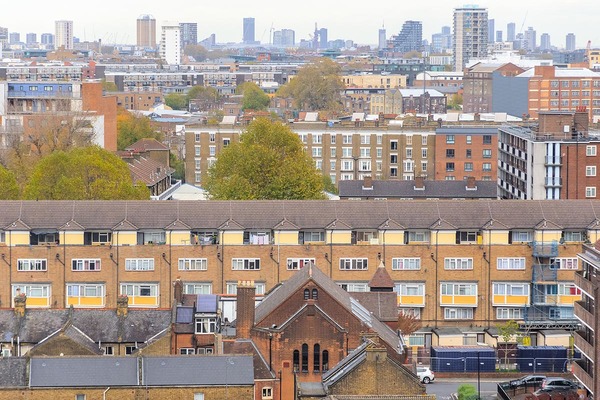You are viewing 1 of your 1 free articles
Government to develop ‘critical information’ plan to provide service charge details for buyers before purchase
The government is drawing up new plans that would see potential homebuyers given “critical information”, such as service charge levels, before they make an offer on a property.
Inside Housing understands that the Department for Levelling Up, Housing and Communities (DLUHC) is developing plans to provide a system in which information such as tenure type, lease length and any service charges are made publicly available to buyers ahead of purchase, with this potentially being made a legal requirement.
One source close to the government said it was working on details of how the scheme could work and what information would need to be included. They added that changes were being brought in as it believe it is important for homebuyers to be able to access key information so they could make decisions that are right for them.
The details come after the publication of housing secretary Michael Gove’s Levelling Up White Paper, which included a number of new policy ideas aimed at making it easier for first-time buyers to purchase properties.
This mentioned the “critical information” plan and indicated that the government would begin explore options to limit the competition first-time buyers face when trying to buy a property.
Inside Housing understands that this includes assessing ways in which to take action to limit competition from overseas investors and second homeowners for first-time buyers in certain areas.
The move to provide critical information upfront is part of a move by the government to try and reduce the number of house sales that fall through and minimise wasted costs for buyers. Currently, around a third of all housing transactions fall through, with buyers wasting hundreds of pounds during the process.
The critical information pack appears to have some parallels to the controversial home information packs (HIPs), which were made a legal requirement in 2007 but binned three years later by then-communities secretary Eric Pickles.
HIPs were mandatory for all sellers and had to include a home condition report, title documents and a legal summary, and would cost around £600 on average.
However, HIPs detractors often argued that the cost and effort that sellers needed for a HIP often discouraged sellers from selling, contributing to a slowdown in the house sale market.
When scrapping them in 2010, Mr Pickles said: “The expensive and unnecessary home information pack has increased the cost and hassle of selling homes and is stifling a fragile housing market.”
Paula Higgins, chief executive of the HomeOwners Alliance, said she welcomed any move to give prospective buyers the information they need upfront in order to make a decision.
She added: “It’s a crazy situation where buyers spend precious time viewing properties without having the full information they need to make one of their biggest financial decisions ever.”
However, she said that since 2008 estate agents have been required by law to disclose material information about a property, and it was frustrating that so many did not.
Beth Rudolf, director of delivery at the Conveyancing Association, said: “It makes perfect sense for this to be in the levelling-up promises.
“What we need is legislation to mandate a property pack and cut across the commercial barriers which currently prevent the delivery of upfront information to an industry where everyone can see the benefit to the consumer.”
Ms Rudolf pointed to Scotland where upfront information packs are required and only one in 10 transactions fall through, as well as some Australian states where sale information needs to be provided and only 2% of transactions fall through.
However, property expert and buying agent Henry Pryor predicted there could be some kickback from estate agents to the plan.
He said: “It reduces the total number houses sold, because lots of people spontaneously sell because they have found something else, don’t sell because they can’t get themselves sorted [with this information] fast enough to compete.”
He pointed to the reaction from these agents following the introduction of HIPs and said: “Anything that reduces the number of properties that is being offered for sale, is generally opposed by estate agents.”
The information packs was one of a number of policies that the government was looking at in the white paper aimed at boosting homeownership. This also included exploring options to “further limit the competition first-time buyers face” by looking at options available to stop local people being priced out of some housing markets.
A government source said it was aware that large numbers of second homes or overseas ownership concentrated in a single area can have a negative effect first-time buyer numbers and local communities if the homes are left empty and “wanted to take action to limit this”.
As part of this plan, it will be assessing how countries overseas have legislated to try and reduce this problem.
The issue of second homeowners pricing out local people from securing homes is particularly acute in areas such as Cornwall, where prices are inflated by these purchases. According to government figures from 2018, there are an estimated 13,500 second homes in the county, making up as much as 40% of all homes in villages.
Sign up for our daily newsletter
Already have an account? Click here to manage your newsletters












